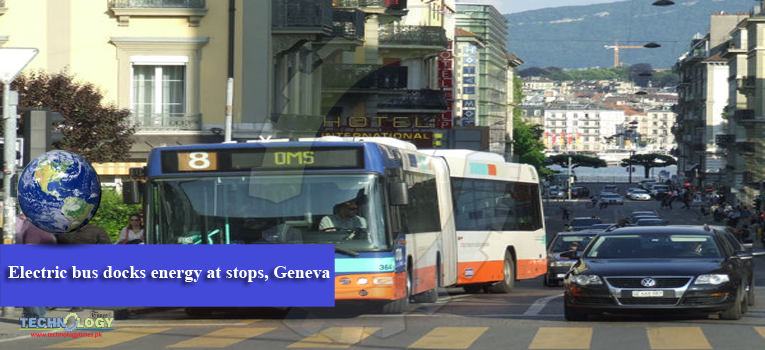In Geneva, electric bus sips energy at stops and takes a “snack” while passengers hop on and off. An articulated arm above the roof stretches up and inserts itself into a suspended rail above the vehicle. In about 20 seconds, the bus batteries are recharged.

Described as “bottle-feeding,” these flash refills made by the TOSA bus at certain stops no longer surprise the regular passengers of bus line 23, linking the Geneva airport to the most populated municipalities on the outskirts of the Swiss city.
The vehicle, operational since late 2017, began its life as a prototype born from the collaboration between three parastatal city organizations and a private company.
The idea came about at the beginning of the decade, during a meal that brought together the then-director of Public Transport of Geneva (TPG) and his counterpart at ABB Sécheron, a local subsidiary of the Swiss-Swedish industrial group.
GIS (the electricity supplier) and the Office for the Promotion of Industries later joined the adventure. Together their initials formed the acronym TOSA.
The TPGs have, experienced malfunctions in the battery cooling system, whistling sounds during recharges, and overly flexible brackets supporting the charging rails.
The troubles on the existing line have been solved. “In March, 98 percent of this line was covered by TOSA buses, which have covered more than 500,000 km since they were put into service,” says Thierry Wagenknecht. “Compared to a thermal engine, we save 1,000 tonnes of CO2 per year.
A TOSA bus is 25 percent more expensive than a diesel one, but 12 percent cheaper than a trolleybus, according to our initial estimates.
Will the TOSA bus convince others? ABB says there are talks of an agreement with an Asian city, while Hess reveals that there are negotiations with other French and Australian cities.